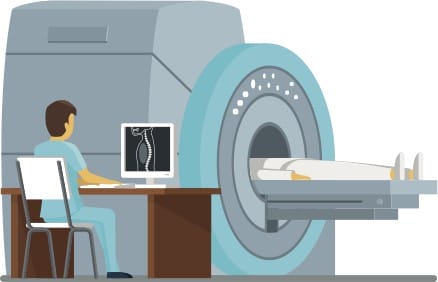Rikhi Anandsongkit and his team of physiotherapists give insight into this oft- debated question.
Back pain is one of the most common physiological ailments for most people, and it’s been this way for centuries. Over the years, people have come to expect that they will deal with some kind of back pain, but they’ve been told that medical treatment has begun to close the gap with better diagnoses and treatment.
While the previous statement is true, we believe that a lot of back pain that has been diagnosed by MRI machines and treated with back surgery doesn’t always go away. In fact, sometimes the pain returns a few months after surgery and in some ways, it feels even more debilitating than before.
But why does this happen? And how does one get the right treatment for back pain? Here are some answers to these questions.
Do MRI scans diagnose back injuries effectively?
The MRI machine is a marvel of modern medical technology, and its role in a hospital is pivotal for numerous reasons. In terms of imaging or identifying serious and sinister pathology issues, they should always be recommended, and few medical devices can match the scope of the MRI. But in the case of back pain, does it really show the root cause of the pain?
The answer might surprise you, but in short, whether the person complains of back pain or not, either scan is likely to show some form of lumbar/disc impingement and degeneration. Let us explain. In a 2015 paper by Brinjiki et al, out of 3110 PAIN- FREE participants from 20-80 years of age, the percentage of those who showed degenerative disks were:
- 37 percent of those in their 20s
- 68 percent of those in their 40s
- 88 percent of those in their 60s
- 96 percent of those in their 80s
What does this mean?
It means that most people, whether they are in pain or pain-free, already have some kind of ‘back issue’ (this is a general term for a range of issues such as bulging discs, disc degeneration, etc.) and the MRI shows this. In fact, this study shows that it would be abnormal to find someone who doesn’t show any ‘back issue’ when scanned!
Therefore being told that your disc is bulging or you have a degenerative disc from your MRI scan does not necessarily mean that that is what is causing your back pain. This shows that the MRI doesn’t necessarily help a doctor diagnose the root cause of the pain that needs to be corrected surgically, because they can’t determine if the issue was there before the pain or if it is the cause of the pain. This is even more of a problem if the scan shows multiple back issues in the same person, which makes it even harder to diagnose.
Simply put, scans alone cannot tell us what hurts, and we cannot rely on them as much as we currently do!
None of this is to say that MRI scans are not helpful, only that they should be used as one piece of the puzzle to fifigure out what is the root cause of the back pain, rather than the only diagnosis itself.
Back problems are complex and often stem from a variety of reasons such as, but not limited to, improper biomechanical movements, mobility issues, poor posture, and habits. Many people suffer because they have postural issues while sitting, walking, running and so on. Unfortunately, surgery won’t fix your posture or bad habits.
If you’re experiencing back pain, find a specialist who understands your body, your posture, how you move, how your muscles function, and what your goals are so that they can find the root cause of your pain and develop a comprehensive treatment plan to get you back to doing what you love. In some cases, an MRI may be necessary, but more often than not, it is not.
Rikhi Anandsongkit is the owner of Form Physio and Rehab, a physiotherapy clinic that helps adults in Bangkok get back to doing the things they love without painkillers, injections, and surgeries.
Tel: 095-569-3298
Email: info@formphysiorehab.com www.formphysiorehab.com








